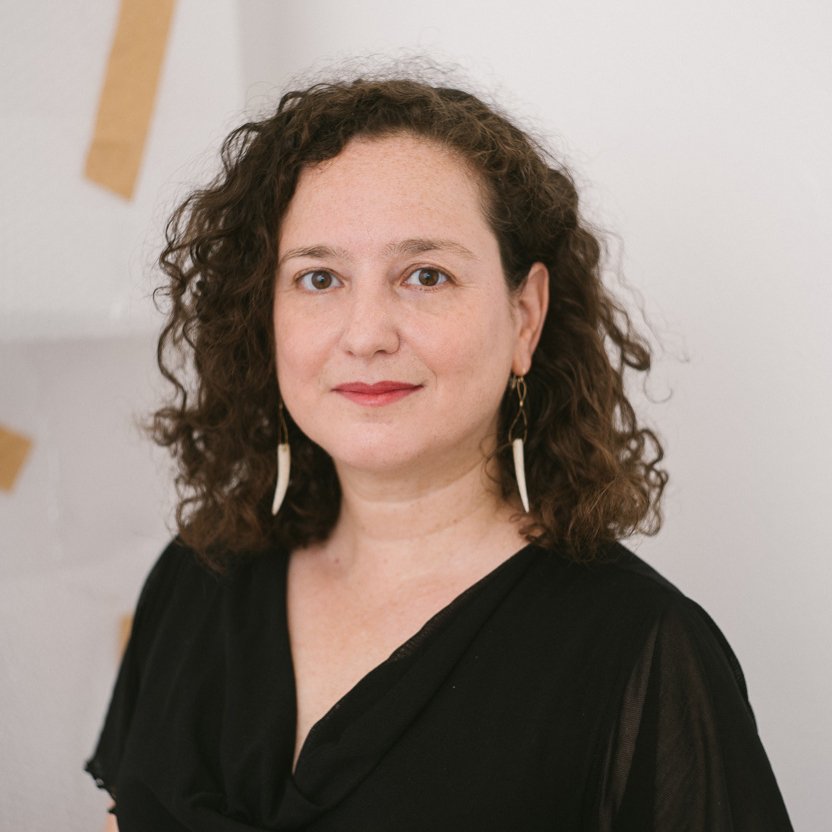Neue Professorin für Diaspora Aesthetics ab 1.10: Noit Banai
Wir heißen Noit Banai (Univ.prof. Diaspora Aesthetics) am Institut für Kunst- und Kulturwissenschaften, herzlich an der Akademie der bildenden Künste Wien willkommen!
Dr Noit Banai (Columbia University, PhD) is an art historian and critic who specializes in modern and contemporary art with a focus on conditions of migration, exile, diaspora, border-regimes and statelessness in a trans-cultural and trans-disciplinary perspective that challenges traditional geographical limitations and disciplinary boundaries.
While teaching around the world for the last two decades, she has been examining the structural conditions, historical processes, artistic/material languages and exhibitionary models through which diasporas have been produced within the intertwined logic of modernity/coloniality, the Westphalian model of the nation state, matrices of racialization, and dynamics of neoliberal global capitalism. Rather than considering Diaspora Aesthetics as a meta-discipline that offers us readymade concepts for an already-formed world, Banai approaches it as a plural space of exploration and enunciation and as a critical archive for the construction of the present.
Recent writings include Formlessness versus Formalization: Towards a Post-National Culture of Remembrance (2022), which considers the stakes of simultaneously living in both a post-1945 and post-1989 world and the way in which artistic practices can create spaces of mutual recognition and dialogical healing in the face of state-imposed histories surrounding the traumas of modernity/ coloniality; Hallucinatory Cinema and the Dialogical Politics of Framing (2021), which brings into relief the contested articulation of the political - in its intersection with current history and memory debates - as a stage where the right to multidirectional subjectivization takes place; and Being a Border (2021), which theorizes various instantiations, techniques and critiques of border identity and images of the ‘people’ that emerged in relation to the arrival of migrants, refugees, and asylum seekers to the EU circa 2015.
Banai’s current book project Stateless: Artistic Practices by Refugees in Shanghai, Hong Kong, Singapore, 1933-1953, historicizes and conceptualizes the experience of statelessness as it was visually documented and produced by European Jewish refugees who fled to these cities as well as by internally displaced indigenous communities and Baghdadi, Persian, and Russian populations that had been residing in East and Southeast Asia since the mid-19th and early 20th century. This analysis of artistic practices emerging from and visually contending with conditions of statelessness, intersectional states of exception, diverse modernities, colonialities, fascism(s), and wartime occupations will expand to Harbin, Rangoon, Manila, Calcutta, and Mumbai and will elaborate other diasporic routes forged by multicultural artist refugee communities in the context of Cold War geopolitics and decolonial realignments.
Banai served as Associate Professor of Art and Theory at the Academy of Visual Arts, Hong Kong Baptist University; Visiting Professor at NYU Shanghai, China; Professor of Contemporary Art in the Department of Art History at the University of Vienna, and Lecturer of Modern and Contemporary Art at Tufts University/School of the Museum of Fine Arts, Boston. She has also offered seminars and given lectures at The Maumaus School in Lisbon, Academy of Fine Arts and Design in Bratislava, Villa Arson in Nice, Singidunum University in Belgrade, National College of Art and Design in Dublin, Victorian College of the Arts in Melbourne, Harabel: Contemporary Art Platform in Tirana, Institute for Contemporary Art in Yerevan, MIT Visual Arts Program in Boston, the Cooper Union School of Architecture in NYC and many other institutions.
